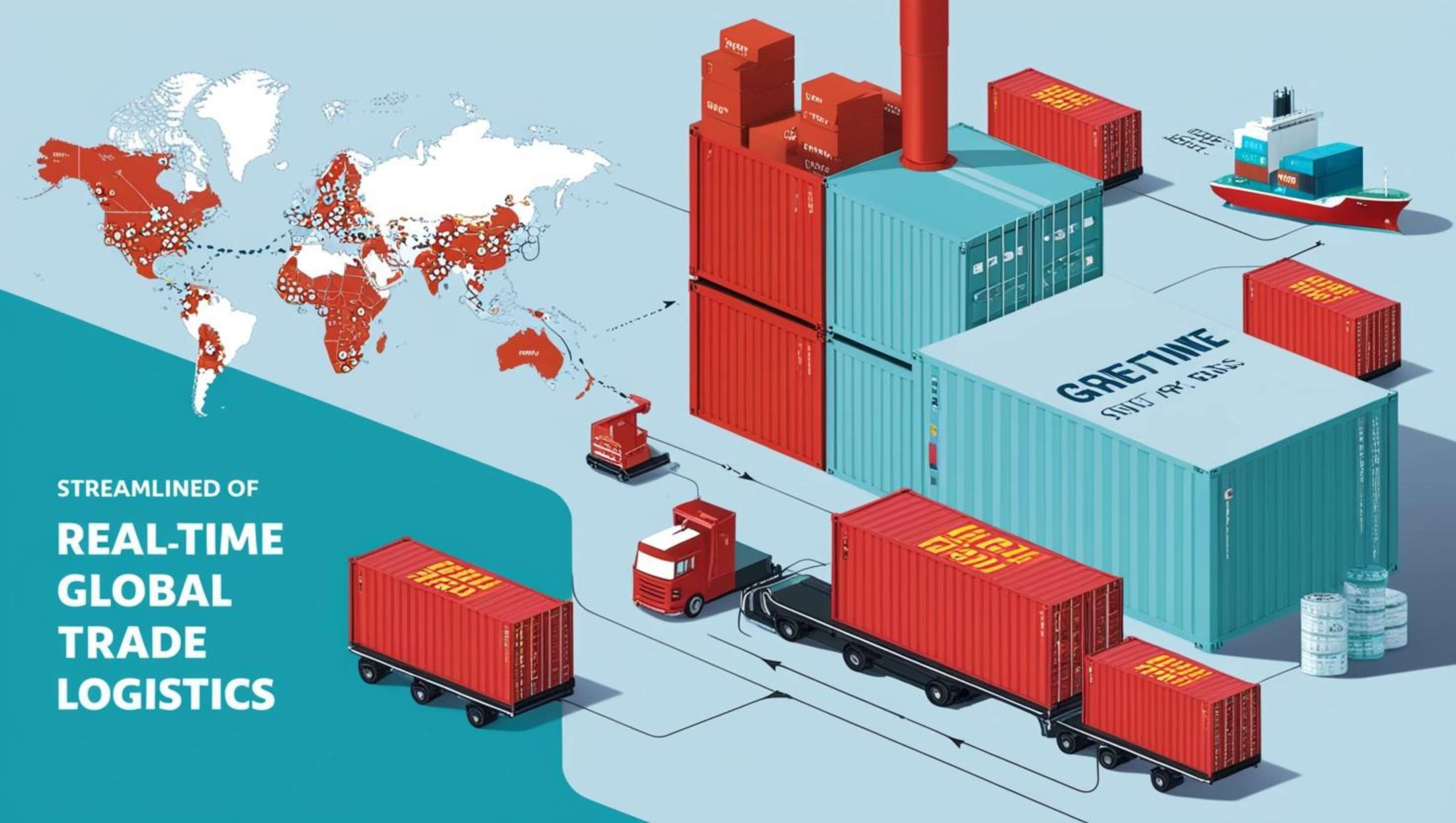
In the fast-evolving world of global trade, the ability to provide transparency, reliability, and control over shipments is no longer a luxury-it’s a necessity. As businesses and consumers increasingly rely on international shipping services, the demand for real-time tracking logistics has soared. This technology not only streamlines cargo shipping and logistics delivery but also plays a pivotal role in building and sustaining customer trust across borders.
In the fast-evolving world of global trade, the ability to provide transparency, reliability, and control over shipments is no longer a luxury-it’s a necessity. As businesses and consumers increasingly rely on international shipping services, the demand for real-time tracking logistics has soared. This technology not only streamlines cargo shipping and logistics delivery but also plays a pivotal role in building and sustaining customer trust across borders.
Real-time tracking logistics bridges this gap, offering continuous, accurate, and accessible information about a shipment’s journey. This transparency is vital for both B2B and B2C customers, who increasingly expect the same level of visibility and control they enjoy with domestic deliveries.
Modern tracking shipping solutions leverage a blend of technologies, including GPS, RFID, IoT sensors, and cloud-based platforms. These systems collect and transmit data at every stage of the supply chain, from warehouse departure to final door-to-door delivery. Customers and businesses alike can access this data through intuitive dashboards, mobile apps, or custom tracking portals.
Key features of advanced tracking logistics include:
Live Location Updates: Continuous GPS tracking provides real-time visibility of shipments anywhere in the world.
Status Notifications: Automated alerts inform customers of key milestones, such as customs clearance, in-transit updates, or successful delivery.
Exception Management: Immediate notifications of delays or disruptions allow for proactive problem-solving.
Environmental Monitoring: IoT sensors track temperature, humidity, and other conditions for sensitive cargo, ensuring compliance and quality.
Customers value transparency above all else. Real-time tracking logistics empowers them with the knowledge of exactly where their shipment is, what stage it’s at, and when it will arrive. This level of visibility reduces anxiety, builds confidence, and sets realistic expectations.
No one likes surprises when it comes to international delivery services. With real-time tracking, businesses can proactively communicate any changes, delays, or issues. This openness not only manages expectations but also demonstrates a commitment to customer satisfaction.
When customers have access to accurate, up-to-date information, they are less likely to contact customer service for updates. This not only enhances the customer experience but also reduces operational costs for logistics providers.
Real-time tracking logistics also improves security. By monitoring routes and detecting deviations, providers can quickly respond to theft, loss, or damage. For regulated goods, environmental monitoring ensures compliance with international standards, further building trust with clients.
Consider a multinational electronics manufacturer shipping high-value components from China to Europe. By leveraging tracking logistics, the company can monitor its cargo in real time, receive instant alerts about customs clearance, and ensure that sensitive equipment is transported under optimal conditions. This visibility is shared with their B2B customers, who can plan their own operations with confidence, knowing exactly when shipments will arrive.
Similarly, in the B2C space, e-commerce platforms that offer real-time tracking for international courier service shipments see higher customer satisfaction and repeat business. Customers appreciate being able to track their orders from the warehouse to their doorstep, especially when dealing with cross-border purchases.
Real-time tracking does not exist in a vacuum. It is most effective when integrated with other logistics services such as automated customs clearance, dynamic routing, and digital documentation. By synchronizing tracking data with customs sync APIs, for instance, businesses can provide customers with real-time updates on customs status, further reducing uncertainty and delays.
Additionally, integrating tracking with pricing for shipping tools allows customers to see not only where their shipment is but also any associated costs, duties, or taxes, creating a holistic and transparent shipping experience.
While the benefits are clear, implementing real-time tracking logistics comes with its own set of challenges:
Data Integration: Connecting disparate systems across carriers, customs, and warehouses requires robust APIs and data standards.
Scalability: As shipment volumes grow, tracking platforms must scale without sacrificing performance or reliability.
Privacy and Security: Protecting sensitive shipment data from unauthorized access is paramount.
Global Coverage: Ensuring consistent tracking capabilities across different countries and regions can be complex.
Leading global logistics providers address these challenges by investing in advanced technology, partnering with reliable carriers, and continuously refining their processes.
As technology advances, the future of real-time tracking in international shipping services looks even brighter:
AI and Predictive Analytics: Machine learning models will predict potential delays, optimize routes, and provide even more accurate delivery estimates.
Blockchain Integration: Immutable ledgers will enhance transparency and trust in the tracking process, especially for high-value or regulated goods.
Customer Personalization: Tracking portals will become more interactive, allowing customers to customize notifications, delivery preferences, and even packaging.
In the world of global trade, customer trust is earned through transparency, reliability, and proactive communication. Harnessing real-time tracking logistics is not just about knowing where a shipment is-it’s about building lasting relationships, reducing friction, and delivering on promises. As expectations for visibility and control continue to rise, businesses that invest in advanced tracking solutions will set themselves apart, driving loyalty and growth in the international marketplace.